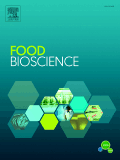
Food Bioscience
Scope & Guideline
Bridging Disciplines to Transform Global Food Systems
Introduction
Aims and Scopes
- Food Quality and Safety:
Research on methods to improve and ensure the safety and quality of food products, including the study of microbial contamination, spoilage, and preservation technologies. - Functional Foods and Nutraceuticals:
Exploration of bioactive compounds in food and their health benefits, focusing on the development of functional foods that promote health and prevent disease. - Biotechnology Applications in Food Science:
Utilization of biotechnological approaches, such as fermentation, enzyme technology, and genetic modification, to enhance food properties and develop new food products. - Food Processing Innovations:
Investigation of new processing techniques, including non-thermal treatments, for improving food quality, extending shelf life, and maintaining nutritional value. - Sustainable Food Systems:
Research on the valorization of food waste and by-products, sustainable practices in food production, and the impact of food choices on health and the environment. - Sensory and Flavor Science:
Studies focusing on the sensory attributes of food, including aroma and taste, and the microbiological and biochemical factors influencing flavor development.
Trending and Emerging
- Functional and Bioactive Ingredients:
There is a growing trend towards identifying and characterizing functional ingredients in food, particularly those derived from natural sources, which have specific health benefits and contribute to functional food development. - Microbiome and Gut Health:
Research linking food consumption, gut microbiota composition, and overall health outcomes is gaining traction, with a focus on how dietary components influence the gut microbiome and related metabolic processes. - Smart Food Packaging Technologies:
The development of intelligent and active packaging solutions that enhance food shelf-life, safety, and consumer engagement is increasingly popular, driven by demand for convenience and sustainability. - Sustainable Food Production Practices:
Research focusing on sustainable practices, including the valorization of food waste and by-products, is on the rise, driven by global initiatives to reduce food waste and improve food security. - Nanotechnology in Food Science:
The application of nanotechnology in food science, particularly for enhancing bioavailability and stability of bioactive compounds, is emerging as a significant research area.
Declining or Waning
- Traditional Fermentation Techniques:
Research on conventional fermentation methods seems to be declining as more innovative and efficient biotechnological approaches gain popularity, leading to a focus on modern fermentation technologies. - Basic Nutritional Studies:
Studies that primarily focus on the basic nutritional content of foods without exploring functional or health-related outcomes are becoming less prominent, replaced by research that connects food composition to specific health benefits. - Non-Functional Packaging Research:
Research that does not incorporate innovative or active packaging technologies is decreasing, as the emphasis shifts toward developing smart and functional packaging solutions that enhance food preservation. - General Food Microbiology:
While microbiological studies remain important, there is a noticeable decline in research that does not integrate advanced molecular techniques or does not connect findings to food safety and quality.
Similar Journals

FOOD SCIENCE AND BIOTECHNOLOGY
Innovative Insights for a Healthier TomorrowFOOD SCIENCE AND BIOTECHNOLOGY, published by the Korean Society of Food Science & Technology (KOSFOST), stands as a prominent peer-reviewed journal dedicated to advancing knowledge in the fields of food science, biotechnology, and applied microbiology. With ISSN 1226-7708 and E-ISSN 2092-6456, this journal serves as a pivotal platform for disseminating high-impact research from South Korea and beyond, reflecting a robust Q2 ranking in multiple categories including Applied Microbiology and Biotechnology, Biotechnology, and Food Science as of 2023. The journal's influence is further emphasized by its positions in various Scopus ranks, where it showcases a commendable percentile ranking in Agricultural and Biological Sciences and Biochemistry. Although access options remain limited, the journal’s objectives revolve around the publication of innovative research, fostering interdisciplinary collaboration, and facilitating the exchange of ideas among a diverse community of researchers, professionals, and students. Whether you are involved in food technology, microbial biotechnology, or nutritional sciences, FOOD SCIENCE AND BIOTECHNOLOGY are instrumental in shaping the future of these critical fields, propelling advancements that enrich our understanding of food systems and health.

eFood
Pioneering insights in food technology and nutrition.eFood is a pioneering journal in the field of food science, published by the esteemed WILEY. With its impactful emergence, the journal has rapidly established itself within the academic community, evidenced by its impressive Q1 category ranking in Food Science as of 2023, and a commendable position at Rank #95 out of 389 in the Scopus database. Covering a wide spectrum of topics related to food innovation, technology, safety, and nutrition, eFood serves as an indispensable platform for researchers, industry professionals, and students who are at the forefront of advancing our understanding of food systems. The journal notably operates with an open-access model, promoting wide dissemination of knowledge while enhancing the visibility of high-quality research. As we look forward to converging years from 2020 to 2024, eFood is poised to foster rigorous scientific discourse and contribute significantly to the future of food science research.

Food Chemistry-X
Pioneering Research for a Healthier Tomorrow.Food Chemistry-X is a premier open-access journal published by Elsevier, dedicated to advancing the field of food chemistry through high-quality research and comprehensive reviews. With its ISSN of 2590-1575, the journal has gained significant attention since adopting an open-access model in 2019, allowing wide dissemination of knowledge and innovations in food science. Based in the United Kingdom, it holds prestigious Q1 rankings in both Analytical Chemistry and Food Science categories as of 2023, positioning itself as a leading platform for researchers worldwide. The journal's focus spans extensive topics within food chemistry, including food safety, nutritional analysis, and the chemical properties of food, offering insights that are crucial for addressing contemporary challenges in food production and consumption. With a Scopus rank placing it in the 65th percentile among the top journals in Food Science and the 58th percentile in Analytical Chemistry, Food Chemistry-X is an essential resource for academics, professionals, and students seeking to stay at the forefront of research and innovation in this vibrant field.

Foods and Raw Materials
Exploring groundbreaking studies in food safety and technology.Foods and Raw Materials is a premier open access journal published by Kemerovo State University in the Russian Federation, dedicated to advancing knowledge in the field of Food Science. Since its foundation in 2013, the journal has established itself as a significant platform for researchers and professionals, featuring groundbreaking studies and innovative findings in both food science and veterinary disciplines. With an impressive impact factor reflected in its 2023 Scopus rankings—where it holds a Q3 categorization and is positioned in the 83rd percentile in Veterinary General, and the 75th percentile in Agricultural and Biological Sciences—the journal serves as an essential resource for academics and practitioners alike. As it continues to evolve and converge through 2024, Foods and Raw Materials aims to foster interdisciplinary collaboration and provide a comprehensive forum for the dissemination of significant research that shapes the future of food safety, sustainability, and technology.
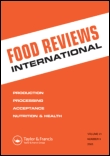
FOOD REVIEWS INTERNATIONAL
Bridging Academia and Industry in Food ScienceFOOD REVIEWS INTERNATIONAL, published by Taylor & Francis Inc, serves as a pivotal resource within the fields of Food Science and Chemical Engineering. Established in 1985, this esteemed journal offers a comprehensive platform for the dissemination of critical reviews that enhance understanding and innovation in the food industry. With an impressive impact factor reflecting its Q1 quartiles in both Food Science and Chemical Engineering categories, it ranks among the top journals in Scopus, securing the 24th spot in Agricultural and Biological Sciences. Scholars, researchers, and professionals are encouraged to explore its rich content, which spans meticulously reviewed articles that bridge academic research and practical applications, while contributing to advancements in food safety, processing, and sustainability. Although not an Open Access journal, access to its extensive repository is vital for anyone aiming to stay at the forefront of food science advancements.
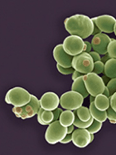
Annual Review of Food Science and Technology
Transforming Food Science Through Comprehensive ReviewsThe Annual Review of Food Science and Technology, published by ANNUAL REVIEWS, is an esteemed journal dedicated to advancing the knowledge within the field of food science. With an impressive Q1 ranking in the Food Science category, and ranking as #6 out of 389 in the Scopus Agricultural and Biological Sciences category, the journal serves as a vital resource for researchers, professionals, and students. This publication encapsulates comprehensive reviews and cutting-edge research, helping to bridge the gap between research and practical application. Though it does not offer Open Access, it provides valuable insights into various aspects of food science from 2010 to 2024, ensuring that its readership stays at the forefront of emerging trends and innovations. The journal's focus on high-quality, peer-reviewed articles makes it a critical platform for scholars looking to deepen their understanding and contribute to this rapidly evolving field.
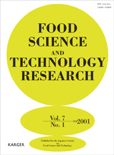
FOOD SCIENCE AND TECHNOLOGY RESEARCH
Elevating Standards in Food Safety and QualityFOOD SCIENCE AND TECHNOLOGY RESEARCH, published by the Japanese Society of Food Science & Technology, is a pivotal journal that encompasses a wide spectrum of research in the fields of food science, biotechnology, and engineering. With its ISSN number 1344-6606 and a digital counterpart E-ISSN 1881-3984, this journal aims to disseminate cutting-edge research and innovative technologies that enhance food safety, quality, and sustainability. Recognized for its contributions, it holds a Q3 category ranking in multiple disciplines, including Food Science and Biotechnology, indicating a significant role in advancing academic discourse. Researchers and professionals can benefit from its insights, as the journal covers an array of topics relevant to industrial applications, marketing strategies, and scientific advancements. Although not an open-access journal, it has a wide reach and is committed to providing high-quality, peer-reviewed content essential for scholars and practitioners in the food science community from 1999 to 2024.

Food Production Processing and Nutrition
Elevating understanding of food's role in health and wellbeing.Food Production Processing and Nutrition, published by SpringerNature, stands at the forefront of advancing knowledge in the vibrant fields of food science, nutrition, and public health. This esteemed Open Access journal, operational since 2019, plays a pivotal role in disseminating breakthrough research that intersects food production processes with nutritional insights, making it an invaluable resource for researchers, professionals, and students alike. With a commendable 2023 impact factor reflecting its robust scholarly contributions — Q1 in Food Science and Q2 in both Nutrition and Dietetics and Public Health, Environmental and Occupational Health — the journal not only emphasizes the importance of innovative food processing methods but also addresses pressing nutritional challenges faced globally. Located in the United Kingdom, it claims an impressive Scopus ranking, with a notable percentile standing across various categorical metrics. As such, Food Production Processing and Nutrition is essential for anyone aiming to deepen their understanding of how food systems impact public health through effective processing and nutritional strategies.
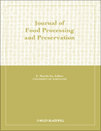
JOURNAL OF FOOD PROCESSING AND PRESERVATION
Elevating Standards in Food Processing and PreservationJOURNAL OF FOOD PROCESSING AND PRESERVATION, published by Wiley-Hindawi, stands as a vital resource within the fields of Food Science, Chemical Engineering, and Chemistry. With an ISSN of 0145-8892 and an E-ISSN of 1745-4549, the journal has been a beacon of knowledge since its inception in 1977, continuing to provide valuable insights to the research community until 2024. Recognized for its quality, it holds a noteworthy Q2 ranking in 2023 across multiple categories, including Food Science and Chemical Engineering, indicating its influential contribution to the academic discourse. Although it offers no open access, the journal remains a crucial platform for disseminating groundbreaking research and innovative methodologies in food processing and preservation. Researchers, professionals, and students can significantly benefit from its comprehensive reviews, original research articles, and case studies, aimed at advancing knowledge and practices in food technology. By bridging the gap between theoretical advancements and practical applications, the JOURNAL OF FOOD PROCESSING AND PRESERVATION plays an essential role in addressing global food safety, sustainability, and quality challenges.
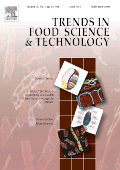
TRENDS IN FOOD SCIENCE & TECHNOLOGY
Pioneering trends that shape the future of food.Trends in Food Science & Technology, published by Elsevier Science London, stands as a premier journal in the fields of food science and biotechnology. With an impressive Q1 ranking in both the food science and biotechnology categories, it is recognized for its rigorous peer-reviewed articles that advance knowledge and innovation in the sector. The journal’s Scopus rankings validate its significance, placing it in the top percentile among its peers, with a remarkable rank of #2 out of 389 in Agricultural and Biological Sciences - Food Science, and #4 out of 311 in Biochemistry, Genetics, and Molecular Biology - Biotechnology. Since its inception in 1990, the journal has become a vital resource for researchers, professionals, and students alike, offering insights into contemporary challenges and trends impacting food technology. Although it operates under a subscription model, the quality of research published within its pages makes it an essential read for anyone involved in advancing the science of food.